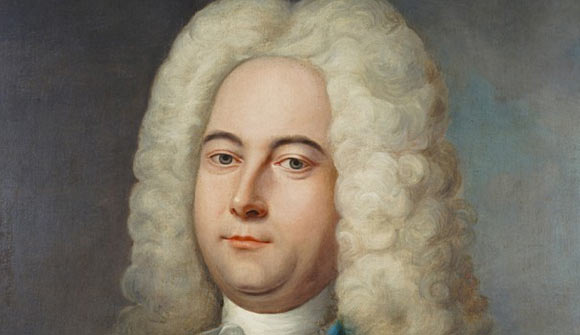
George Frideric Handel was a British composer of the baroque period. He is considered to be one of the most important composers of the Baroque Era, and his music is regarded as a significant part of English Heritage.
George Handel was born on February 22, 1685, in Hally, Duchy of Magdeburg. Handel’s father always intended for his son to study civil law. However, Handel was so inclined towards music that his father had to forbid him from using musical instruments to ‘save’ his education. However, the rebellious Handel would find his way to a clavichord in an unpopulated room in his house while everyone would be sleeping. With the passage of time, the young Handel matured into a skillful harpsichord and pipe organ player. Finally, on a visit to the residence of Duke Johann Adolf I, the young Handel found himself playing the organ. The Duke was so impressed by Handel’s impromptu performance that he urged Handel’s reluctant father to send the child to take lessons in music.
Handel then went on to study with Friedrich Wilhelm Zachow, who was a prestigious church organist at the time. Zachow gave Handel lessons in harmony, counterpoint, and composition. Handel’s rapid progress at his lessons meant that he would ultimately be invited to play for Frederick I of Prussia in 1698, at the tender age of thirteen.
Despite initially agreeing to his father’s wishes to pursue a career in law, Handel accepted an offer to play the organ for his local church. He then went on to become a violinist and harpsichordist in the Hamburg Orchestra, “Oper am Gansemarkt”. Handel then went on to compose sacred music for the Roman Clergy in Italy, which resulted in the remarkable work “Dixit Dominus” in 1707. During this period, Handel also composed two oratorios, titled “La resurrezione” and “II trionnfo del tempo”. His first scale all-Italian opera was also published in 1707, and it was titled “Rodrigo”. Another 1707 opera, “Agripinna”, was reported to be so successful that it ran for a consecutive twenty seven nights.
Handel was a highly prolific musician. There are more than forty two operas, one hundred and twenty cantatas, and twenty nine oratorios to his name. He also composed a wide array of chamber music, odes, serenatas, and organ concerti. Perhaps Handel’s most famous composition was the oratorio titled “Messiah”. The oratorio went on to become one of the most well known choral works of all time. Other highly famous works from Handel’s repertoire include his keyboard suite “The Harmonious Blacksmith”, his “Organ Concerto Op.4” and “Organ Concerto Op.7”. Handel is also credited with fifteen other keyboard suites. In addition, Handel’s “Ode for St. Cecelia’s day” and “Ode for the Birthday of Queen Anne” are also noteworthy compositions. Handel was also known for his ability to create sensational music with the least of means, it was reported that Beethoven once said of Handel, “Go to him to learn how to achieve great effects, by such simple means”.
Handel is also credited with writing “Zadok the Priest” for the coronation ceremony of King George II. The anthem was so popular with the English Royalty that it was immortalized in the sense that it was played in every English coronation ever since. George Frideric Handel died on April 14, 1759 in London. His funeral was given full state honors.